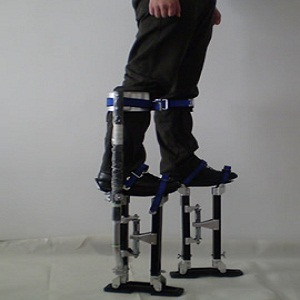How to Use Drywall Stilts

Stilts make life a lot easier for drywall finisher’s and painters by aiding them in their work. These stilts help them reach high areas of walls and ceilings and keep the mobility of moving to any desired area. This is not possible with a stationary platform whom you have to manually displace to shift to a new location. Stilts have improved a lot over the years and allow a worker to adjust the height where he is working. They are usually made of aluminium and are strong enough to hold anyone without any fear of breaking. However, there are still some precautions you need to take and follow a set procedure to avoid any mishap and do the best of work with all the flexibility you need.
Instructions
-
1
Take the measurement of the height you need to work. Adjust the stilt according to this height. After you adjust it, tighten the nuts really well. You can use a wrench to do a sure work. Now tighten the tube clamps according to your calf size. This way you can ensure that the hold of the stilt on your body is neither too tight or too loose and you can work comfortably.
-
2
Before getting on the stilt, make sure that the ground you are working on is neither too rough nor too slippery. The ground should be level surface with no grooves or holes where the stilt can get stuck.
-
3
Place your feet on the foot plate. Fasten the strap well for both feet. Tighten the safety anchor slots. Secure the screws well. Now you are ready to take steps and work on the dry wall. Start with short steps, raining your feet well above the ground. However, there are still a lot of precautions that you need to take. Do not bend to retrieve anything off the floor without removing the stilts. It is better to ask a person to stay nearby to assist in movement if it is your first time. Do not attempt to walk backward because it can disturb your control and cause you to fall. If you have to change direction, take a 'U' turn instead of turning abruptly. With practice you are going to get fluid.
-
4
When you are done with the work, remove the feet straps first and then the calf clamps. Lubricate and maintain the stilts well for future use.







